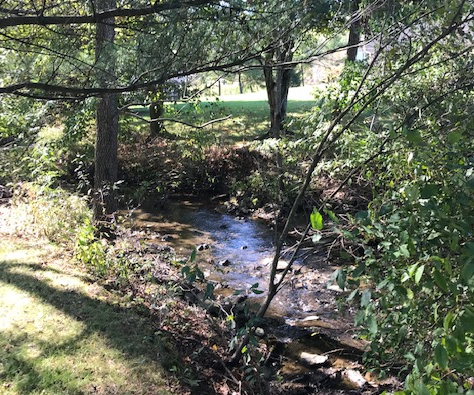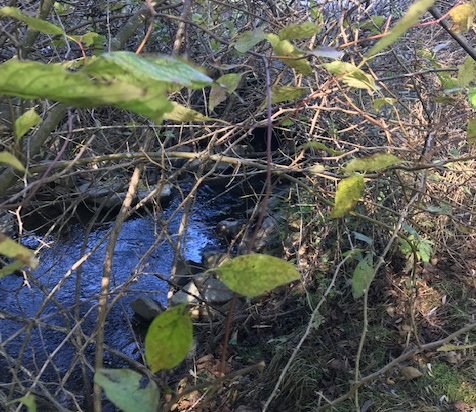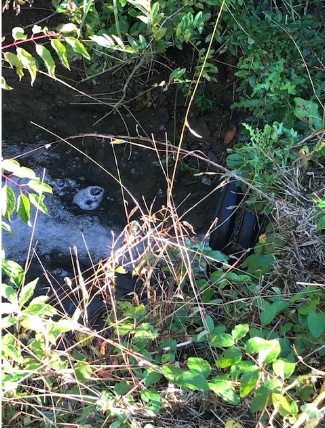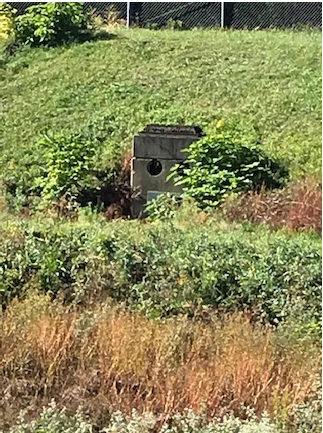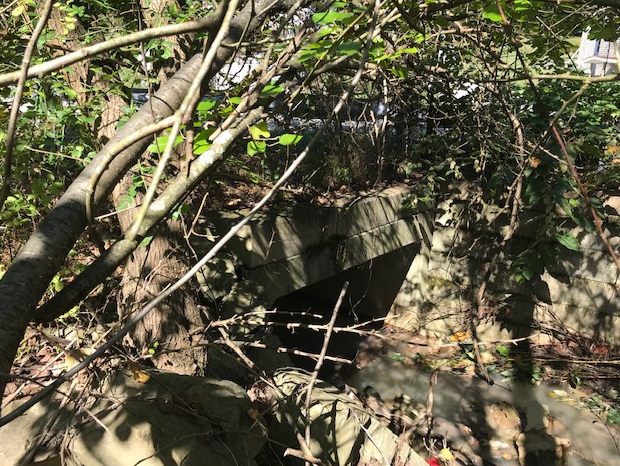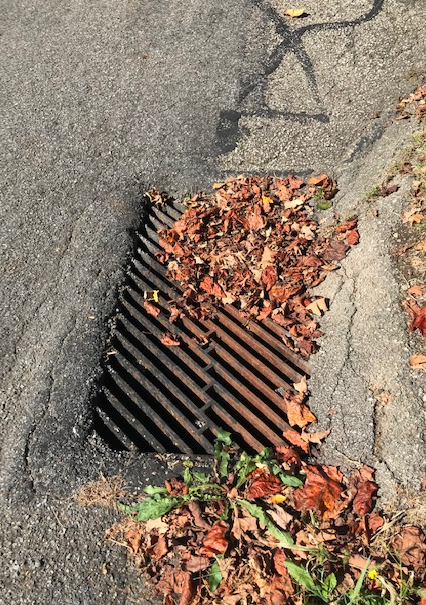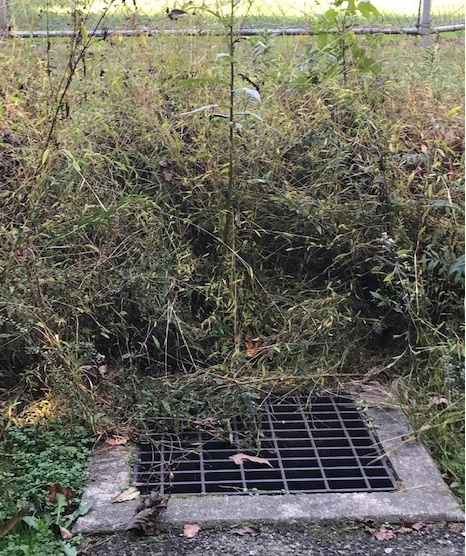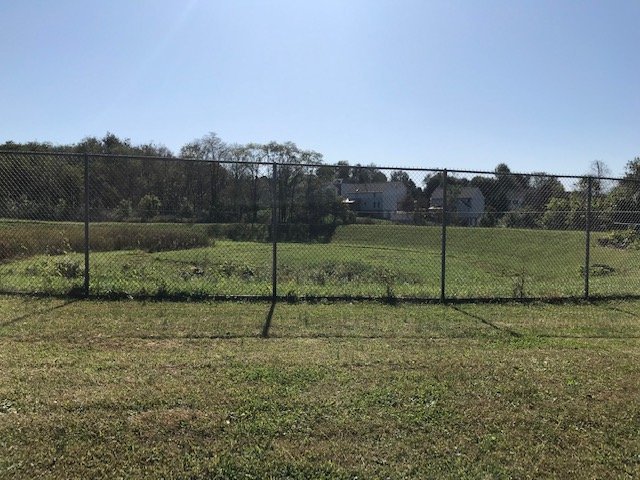Stormwater Management
Penn Township’s Stormwater Program
In 2003, Penn Township became one of approximately 670 small urban communities within the Commonwealth of Pennsylvania required to have its municipal separate storm sewer system (MS4) regulated under the Pennsylvania Department of Environmental Protection’s (PADEP’s) National Pollution Discharge Elimination System (NPDES) Phase II permit program for storm water discharges from storm sewer systems within small- to medium-sized communities within urbanized areas as defined by the 2000 U.S. Census.
What is an MS4?
MS4 is an acronym for a Municipal Separate Storm Sewer System. An MS4 is defined as a collection and conveyance system or a group of collection and conveyance systems owned, operated and maintained by a state, city, township, borough or other public entity that is dedicated solely for the handling of stormwater runoff and discharging it into tributaries, streams, rivers, lakes or other natural or man-made receiving waters within the Commonwealth of Pennsylvania. The MS4 system may include such structures as storm pipes, catch basins, trench drains, roadside swales and cross drains, conveyance channels, detention ponds, infiltration basins, rain gardens or other structures designated for the collection, storage and conveyance of stormwater runoff.
Stormwater management F-1
This was a fenced area, some wet areas, some manicured. Cattails and other wetland type plants present. A boxed culvert encased in concrete was present. Outside of this fenced area was a stone lay down area. This would serve to collect excess run off water.
Stormwater management F-1 pic 2
This was a fenced area, some wet areas, some manicured. Cattails and other wetland type plants present. A boxed culvert encased in concrete was present. Outside of this fenced area was a stone lay down area. This would serve to collect excess run off water.
What is Stormwater Runoff?
Stormwater runoff is water from rainfall, snowmelt, and/or ice melt that flows over ground or impervious surfaces (paved streets, parking lots and rooftops) and does not percolate into the ground. Stormwater runoff may flow directly into natural tributaries, streams, rivers, lakes or other waterways within the Township or it is intercepted and collected by the Township’s municipal separate storm sewer system where it is then discharged at discrete locations (outfalls) into streams, rivers, lakes and other natural waterways.
Stormwater management F-4 pic 2
This location contains a concrete pipe carrying water into the stream.
Stormwater management B-1
This was labeled as a pond, but a pond was not present. This was a semi wooded area with a stream going through it. This serves as an overflow area when severe flooding occurs. This site was at the intersection of Claridge-Elliot Road and Drydam Road.
Stormwater management F-1 pic 3
This was a fenced area, some wet areas, some manicured. Cattails and other wetland type plants present. A boxed culvert encased in concrete was present. Outside of this fenced area was a stone lay down area. This would serve to collect excess run off water.
What is Non-Stormwater Discharge?
Non-stormwater discharge, or sometimes referred to as illicit discharge, is discharge into the Township’s MS4 system or natural waterways that is not either rainfall runoff or snowmelt runoff. Non-stormwater discharge includes groundwater exfiltration, mine pool discharge, discharges from chlorinated water sources such as swimming pool drainage, fire hydrants or waterline blow-off valves, sanitary sewer discharges either from sanitary sewer collection systems or on-lot septic systems. Unless specifically listed as an exemption, most non-stormwater discharges are prohibited under the Township’s Illicit Discharge and Connection subsection of its Stormwater Management and Land Disturbance Ordinance.
Why can stormwater runoff be a problem in the Township?
As stormwater runoff flows over lawns, roadways, parking lots, or land disturbed by construction activities, it accumulates chemicals, oils and grease, debris and litter, sediment, heat or other pollutants that contaminate and adversely affect the water quality of our natural waterways. Also, as more impervious cover is constructed or as natural vegetation is cleared and the underlying soil is compacted, more stormwater runoff is generated.
Stormwater runoff pollution can lead to deterioration of the quality of our natural waterways which are used for fishing, swimming, boating, as well as sources of our potable water supply. Increases in stormwater volume due to urbanization within a waterway’s watershed can lead to accelerated stream bank erosion and more frequent stream channel flooding which can result in damage to and loss of property as well as premature failure of roadway culverts and bridges.
What is Penn Township doing about stormwater runoff?
As part of its MS4 permit program, the Township has implemented several actions or measures to ensure the proper handling and discharge of stormwater through its MS4 system. Such measures include the following:
- Provide and distribute educational materials concerning stormwater runoff through various outlets to residents, businesses, contractors and developers within the Township. Several links to additional information are also provided below in the “Related links and more information” section.
- Through its Illicit Discharge Detection and Elimination program, the Township has developed a Township-wide MS4 outfall map showing all natural waterways and roadways within the Township as well as all outfall locations of its MS4 system into the natural receiving waters. This map will serve as a tool for the Township to identify outfalls that are discharging pollutants as determined by visually screening each outfall during dry-weather periods. Any indications of non-stormwater discharge will prompt the Township to find and identify the source of these pollutants and take actions to eliminate the source(s).
- The Township has adopted an ordinance to prohibit illicit discharges and connections of non-stormwater into its MS4 system and enable the Township the authority to fine individuals caught illegally dumping pollutants into its MS4 system.
- The Township has adopted an ordinance for the regulation of stormwater management of land disturbance activities and the handling of post-construction stormwater runoff. The Township also provides educational material to developers and contractors who come to the Township office for building permit applications. The Township also utilizes the technical support services of the Westmoreland Conservation District to review land disturbance plans to ensure that these plans are sufficient in addressing construction site stormwater and post-construction stormwater and to conduct site inspections to ensure that the sites are being constructed in accordance with the approved plans.
The Township is continuously maintaining and tracking its MS4 system through cleaning, repairing and improving the system to ensure that it is functioning correctly. The Township is also monitoring all other municipal operations such as fleet vehicle maintenance, municipal property maintenance, as well as salt and anti-skid material stockpiling to minimize any detrimental impacts that these operations may have on the MS4 system.
Pond I
This area was a fenced pond. Catch basins near the pond were found. Accessibility was an issue.
Pond H
This was a pond along Mellon Road. This area contained a concrete boxed culvert. Natural gas lines ran parallel to the pond.
Pond F-2
This is a fenced area with a pond. A concrete boxed culvert was present. The vegetation was overgrown.
What can residents of Penn Township do to improve stormwater quality in the Township?
Our storm sewer inlets, curbs and gutters, drainage ditches and storm pipes discharge directly and untreated into Turtle Creek, Coal Run, Bushy Run and other natural waterways within the Township. It takes everyone to provide continual improvement to the waterways within Penn Township. We would hope that every person realizes that what is dumped into the Township’s MS4 system, ultimately ends up in the streams, rivers and lakes that we all care about. Here are several things each of us can do to help keep our waterways clean.
SPRING & SUMMER:
- Maintain the grass height in your yard at 3 inches or more. Longer grass is healthier and requires less fertilizer.
- If using fertilizers or pesticides, always follow the directions and never apply immediately before a rain storm.
FALL:
- If draining your pool, allow your pool to de-chlorinate first by keeping it uncovered and waiting ten (10) days after its last chlorination to allow the chlorine to dissipate in the air.
- Do not discard leaves onto the street, into the storm drains, streams or other waterways.
WINTER:
- Avoid using sodium chloride as a deicer. Commonly used road salts like sodium chloride (also known as halite) can kill plants, break down concrete, and stain carpets. More environmentally friendly alternatives to sodium chloride are acetates, potassium chloride, or magnesium chloride.
- Open your rain barrel spigot. Although this doesn’t help with stormwater in the winter, it does help prevent your barrel from filling with ice and potentially cracking.
- Do not pile snow on your rain garden. Though your plants are dormant, heavy snow loads, upon melting, could saturate your garden for long enough to potentially hurt your plants. Normal snow accumulation does not pose a problem, though, so there is no need to shovel the garden! Pile your snow from elsewhere on the uphill side of the rain garden instead so that when it melts your rain garden can do its thing.
- Go pervious. Replacing your walkway or driveway with river stone, pervious pavers, or other porous materials will allow water to soak into the ground instead of becoming runoff. These surfaces not only help reduce polluted stormwater runoff and erosion, they also “breathe” more than impervious surfaces like asphalt and concrete, so they take longer to ice over.
YEAR-ROUND:
- Do not dump any chemicals, oils or other automotive fluids, grease, pet waste, grass clippings or other yard debris, fertilizers, etc. into storm inlets, catch basins, roadside ditches or directly into stream channels. This can lead to endangerment of the health of fish and other aquatic life, decrease in recreational opportunities and impairment of drinking water.
- Do not litter or illegally dump. Always dispose of any trash in its proper location and recycle whenever possible. Car batteries can be turned it at most automotive parts stores. Used motor oil and worn tires can be turned into most service shops. Please visit www.westmorelandcleanways.org for more info on the proper disposal other hazardous household chemicals.
- Clean up after your pet. Don’t let pet wastes get washed into the street or down the storm drain.
- Wash your vehicle at a commercial car wash or if washing at home, wash your vehicle in a grassy or gravel area (or divert your wash water into the grass or gravel area).
- Have your car or truck serviced regularly and eliminate any leaks in your vehicle.
- If you see or suspect any pollutants or non-stormwater discharges entering into the Township’s MS4 system or natural waterways, notify the Township’s Code Enforcement Office at 724-744-2171 ext. 207.
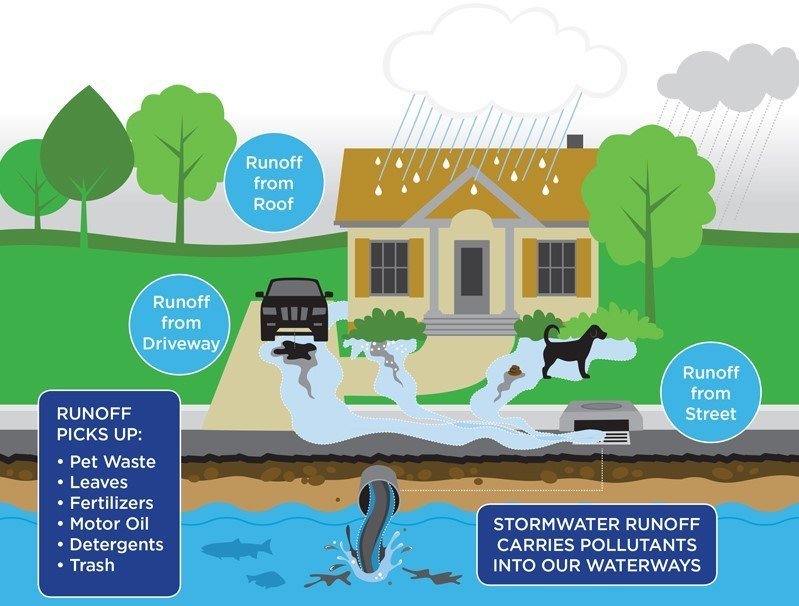
Picture credit: City of Richmond, VA
Township Information
- About Penn Township
- Organizational Charts
- Municipal Staff
- Commissioners
- Agendas & Reports
- Oil & Gas Industry
- Township Code
- Comprehensive Plan – 2005
- Comprehensive Plan – 2020
- Stormwater Management
- Township History
- Polling Locations
- Zoning Map
- Ward Map
- Interactive Map
- Taxes
- Penn Area Library
- Act 44 Pension Report
- Right to Know Law
- Employment Opportunities
- Calendar of Events
- Public Documents






